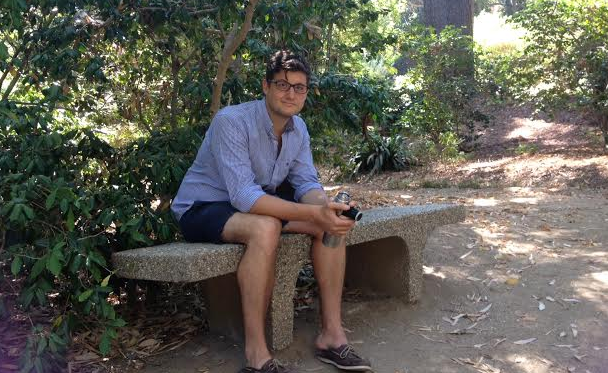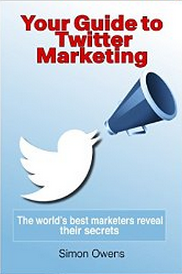Cases: How The Atlantic uses Twitter to drive traffic

Jake Sweeringen, The Atlantic SM Editor
Although most of the traffic to content is attracted through Facebook, Twitter plays an important role in this business - not only as a source of direct traffic, but also as a means of reaching out to industry leaders who distribute content across all platforms, from Facebook and Reddit and to the media ( Twitter has a huge number of journalists). Web sites used to set up RSS, which automatically uploaded content to Twitter, but then it became clear that in order to maximize traffic, it was necessary to hire an SMM editor that would use the techniques and humanize the community on the social network.
Jake Svearingen has been working with SMM since 2011, first for a small newspaper in California, then as a digital editor for Modern Farmer magazine. In September 2014, he became the social media editor at The Atlantic, and manages all social platforms with a total number of followers of several million. We talked about the role of Twitter in driving traffic and maximizing CTR.
')
Let's start by defining the role of Twitter in sending traffic to news publishers. How important is it? One of your authors wrote that his influence is very limited. Do you subscribe to this?
If you measure its influence numerically, then Twitter will be a very small traffic generator - less than Facebook or even a link from an average blog. I remember how Miley Cyrus posted a link to our article on Twitter to urge everyone to follow the link and read. She then had 2.2 million followers, and only 2000 people followed the link. Less than 1%. Less than banner ads. Of course, we have such authors, like Ta-Nehisi Coats, who has any record that arouses the interest of readers. When he writes “I have a story,” it usually quickly flies through the internet. In addition, it is difficult to measure traffic when it comes to Twitter - someone can see something in tweet, post a link at home and as a result it will attract a lot of traffic. So it’s hard to track down.
How about Twitter as a network of influence? Although the traffic from it is not so big, but it is there that industry leaders hang out, and from there the information spreads through other networks.
I saw examples of how the story played on Twitter, and nowhere else. The idea of being able to get in touch with influential people who can attract a lot of attention has the right to life. But, despite this, it seems to me that even if we completely stop tweeting anything, it will not be a serious blow. We stay on Twitter because many of those we want to share with our content use Twitter to get information. And it allows you to immediately enter into dialogue in ways that cannot be done on Facebook. Although The Atlantic is not a news agency, and we do not try to instantly respond to events, we want to participate in dialogues and for this we need to be on Twitter.
We heard that Twitter is beginning to work closely with Google, and the latter will be able to better index Twitter content. Are there consequences for SEO?
Our SEO scores are quite good, but I don’t know how much Google’s improved indexing will have a significant effect on Twitter.
How do you decide to launch a new account? The company has many verticals and subcategories. Is there any kind of profit / loss analysis before launch?
There are two points. Firstly, how exactly will you build traffic from this account, more precisely, how will you build followers. Twitter followers are easier to build than Facebook. But it takes time and effort. The second is the workflow. Who will be responsible? Who will be the owner? You can't just set up RSS to feed news to Twitter and forget about it. We need to write headlines and write texts specifically for Twitter. I would think about whether the topic is sufficiently suitable for gathering the community around it. Is there someone among the staff who is very interested and who may already be doing this? This is not a task that you can just take and start developing, as a section on the site. The topic should be good, and you need to find someone who will deal with it from the heart. On the Facebook page, you can post posts 3-4 times a day, but you need to make 10-15 posts per day on your Twitter account.
What is the dynamics between the main and additional Atlantic twitter accounts? How do you decide whether the story will go to the main account, or will it be spun by additional verticals?
Everything we publish goes through the main account. We retweet extras and hope for additional followers.
I noticed that most news organizations, including yours, use hashtags sparingly. Is this on purpose?
There are two points. The first is aesthetics, or even snobbery. Tweets with hashtags look like marketing, or like posts by someone who doesn’t know how to use Twitter. People who manage such accounts want to look like they work for some big publishing house or brand. Secondly, hashtags do not attract additional attention, unless you are using some kind of tag that is currently in trend.
Do you use tools for scheduled posting of tweets, and how do you decide whether to plan a tweet or just publish it right away?
We have a tool that automatically decides when it is the best time to post a topic. Percent 70% of tweets pass through it. Most of our publications are fairly evergreen — in a couple of weeks they will be as relevant as they are today. When we have something radically news and momentary, we publish it immediately.
We heard that you need to tweet the same thing several times a day, because only a small percentage of followers see a particular tweet. How often do you repeat?
In my experience, unlike Facebook, where people complain about unnecessary screaming, you can post the same thing on Twitter as often as the information disappears in the tweet stream. We post things 5-7 times.
In a day?
Not. Sometimes something in the morning, and then in the evening. But usually - within two or three weeks we return to something.
How important is it to post a photo with tweet? Does this CTR increase?
We do not have exact data. I read a lot of different reports that mention CTR increase. It seems to me that this is the case. Especially, specific types of pictures. You can post a tweet with a schedule, map or any other iconography - and people immediately begin to retweet it. Faster than the required time to read the article or even to simply understand what the schedule means. We make a post, and in a few seconds we already have 5-7 retweets. It seems to me that some people like iconography just like to retweet. It seems to me that people on Facebook like to appear comprehensively educated, and on Twitter they are at the forefront of current news.
That is, a self-sufficient tweet from which you don’t need to go anywhere, works better?
Yes. From Twitter, most people do not want to leave. This is good for Twitter, but bad for organizations like ours.
The Atlantic employs journalists with a large number of followers. How important is it? People with great pleasure will follow the tweet of a living person, than tweet a famous brand?
I think yes. We have the Parse.ly tool for tracking statistics. When Ta-Nehisi Coates tweets his work, it causes a strong reaction. With branded accounts this does not happen. It is important to have a journalist who is well represented on Twitter. They can attract more traffic than brands.
How important is it for the SM editor to focus not only on the set of followers to publish, but also on the journalists who write them?
Important. If you work with us, we help you build a base of followers, if you want it. But we do not force everyone to enter social networks. That would be a very bad strategy. If someone wants to do it - cool, but this is not our strategy for everyone. This is just a nice addition.
By what statistics do you judge yourself? Specifically, with regards to Twitter.
Regarding Twitter, I watch referral traffic. How many people passed to us, how many got into the "favorites". Retweets are very important too. If I suddenly see that there are fewer transitions from Twitter than they were, I immediately think that we are doing wrong. We mainly look at referral traffic.
How do you assign roles when the main SM editor rests? Are you expected to work from anywhere? Or can you just send someone a letter asking to "take care of it"?
We have, fortunately, a couple of people who can replace me. Daily issues related to Twitter are handled by my colleague, without my constant supervision. We work mixed on weekends - something I plan ahead, and we have an editor who helps on weekends. SM is not the hardest thing in the world. You can teach anyone how to make a copy of the post and insert a photo. The whole terrible secret of working with social networks is that it’s not so difficult to work with them.
 This is an excerpt from my book, Marketing Guide on Twitter . It contains the opinions of various experts on SMM.
This is an excerpt from my book, Marketing Guide on Twitter . It contains the opinions of various experts on SMM.Source: https://habr.com/ru/post/291394/
All Articles